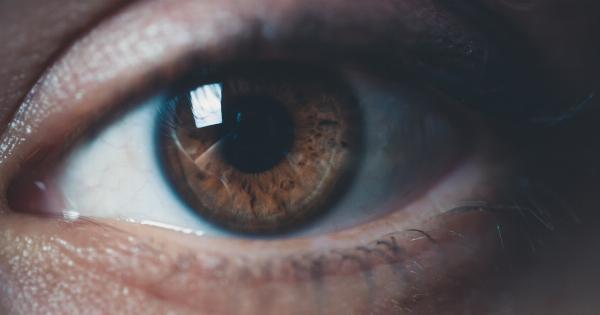Have you ever wondered if you need eyeglasses? It’s common for people to ignore the signs of eye problems, and with growing age, it becomes essential to monitor your eye health to avoid permanent damage or vision loss.
According to the American Optometric Association’s survey, more than 25% of respondents reported experiencing eye strain, blurred vision, and frequent headaches; however, only 50% used eyeglasses. Wearing eyeglasses can improve your eyesight and prevent any severe long-term damage. But, how do you know if you need eyeglasses?.
Common Signs of Eye Problems
Before we dive into the unexpected eyewear that indicates if you require eyeglasses, we need to know the common signs of eye problems. Here are a few signs that could indicate a need for eyeglasses:.
1. Blurry Vision
Blurry vision is one of the most common signs of eye problems and usually occurs when your eyes have trouble focusing on objects.
If you experience blurred vision while reading, watching TV, or working on a computer, it’s best to consult an eye doctor who can prescribe eyeglasses with the correct lens power.
2. Eye Strain and Fatigue
Eye strain and fatigue are common signs of eye problems, especially if you have a desk job that requires you to work on a computer for extended periods.
Strained eyes can feel tired and achy, and if you experience them frequently, you might need eyeglasses with an anti-reflective coating that reduces glare and eye fatigue.
3. Headaches
Frequent headaches that occur after reading, watching TV, or working on a computer are often a sign of eye problems. Straining your eyes can cause headaches and migraines.
If you experience frequent headaches, it’s best to get your eyesight checked to see if you need eyeglasses.
4. Sensitivity to Light
If you find yourself sensitive to light and experience painful eyes when exposed to bright light, you might have problems with your eyesight. Eyeglasses with lenses that have UV protection can reduce photophobia and improve your overall vision.
The Unexpected Eyewear That Indicates if You Require Eyeglasses
You might be surprised to know that there’s unexpected eyewear that can indicate if you require eyeglasses. The eyewear is called pinhole glasses, usually made of plastic or metal frames with small perforations in the place of lenses.
When wearing pinhole glasses, you can see clearly despite the perforated lenses. If you see an improvement in your vision after wearing pinhole glasses, it means that you might have refractive errors and need eyeglasses.
Refractive errors occur when your eyes don’t bend light correctly, leading to blurry vision. Individuals with refractive errors might have nearsightedness, farsightedness, and astigmatism.
Nearsighted people have difficulty seeing objects that are far away, while farsighted people struggle to see objects that are up close. Astigmatism occurs when your eye has an irregularly shaped cornea, which leads to distorted and blurry vision.
Pinhole glasses help individuals with refractive errors see clearly as the small holes in the lens block off peripheral light rays, allowing the central rays to focus on the retina.
This creates a clearer image without the need for prescription eyeglasses.
When to Consult An Eye Doctor
While pinhole glasses might help determine if you have refractive errors, it’s still essential to consult an eye doctor if you experience eye problems.
Eye doctors can prescribe eyeglasses based on your specific vision needs, and they can also help diagnose any underlying eye problems and provide necessary treatment. If you notice any signs of eye problems, it’s best to consult an eye doctor as soon as possible.
Conclusion
Wearing eyeglasses can improve your eyesight and prevent severe long-term damage. The common signs of eye problems include blurry vision, eye strain, headaches, and sensitivity to light.
Pinhole glasses can help indicate if you have refractive errors and might require eyeglasses. However, it’s still essential to consult an eye doctor for proper diagnosis and treatment. Take care of your eyesight and monitor any signs of eye problems as they appear.




























